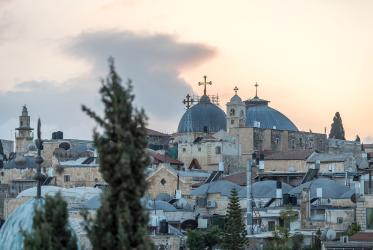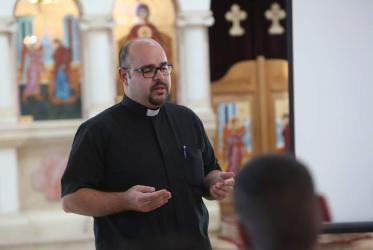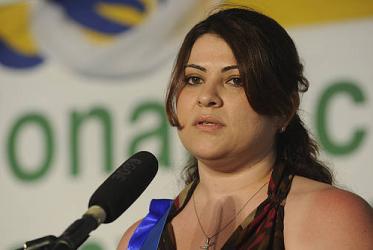Anzeigen von 1 - 20 von 23
“Olive trees are holy signs of peace, older than anyone”
22 Oktober 2020
Dr Saïd Ailabouni: God is on the side of rejected, oppressed, occupied
12 September 2019
World Week of Peace highlights “culture of love and resilience”
27 September 2017
WCC general secretary reflects on peace in Palestine and Israel
20 September 2016
Prayers and action during World Week for Peace in Palestine and Israel
20 September 2014
Ensuring “just peace” in occupied Palestinian territory
17 April 2014
Taking water to the Jordan
20 Juli 2010
No water for the neighbours
03 Dezember 2009












